1524 Died: Marko Marulić, Croatian poet (b. 1450)
Marko Marulić Splićanin (18 August 1450 – 5 January 1524), was a Croatian poet and Renaissance humanist. He coined the term "psychology".
The Latin word psychologia was first used by the Croatian humanist and Latinist Marko Marulić in his book, Psichiologia de ratione animae humanae in the late 15th century or early 16th century. The earliest known reference to the word psychology in English was by Steven Blankaart in 1694 in The Physical Dictionary which refers to "Anatomy, which treats the Body, and Psychology, which treats of the Soul."
Very little is actually known about his life, and the few facts that have survived to this day are fairly unreliable. It is certain that he attended a school run by a humanist scholar Tideo Acciarini in his hometown. Having completed it, he is then speculated to have graduated law at the Padua University, after which he spent much of his life in his home town. Occasionally he visited Venice (to trade) and Rome (to celebrate the year 1500).
He lived for about two years in Nečujam on the island of Šolta. In Split, Marulić practised law, serving as a judge, examinator of notarial entries and executor of wills. Owing to his work, he became the most distinguished person of the humanist circle in Split.
He is regarded as the Croatian national poet and has been called the "crown of the Croatian medieval age" and the "father of the Croatian Renaissance".
1578 Died: Giulio Clovio, Dalmatian painter (b. 1498)
Giorgio Giulio Clovio or Juraj Julije Klović (1498 – 5 January 1578) was an illuminator, miniaturist, and painter born in the Kingdom of Croatia, who was mostly active in Renaissance Italy. He is considered the greatest illuminator of the Italian High Renaissance, and arguably the last very notable artist in the long tradition of the illuminated manuscript, before some modern revivals.
1762 Died: Empress Elizabeth of Russia (b. 1709)
Elizabeth Petrovna (Russian: Елизаве́та (Елисаве́та) Петро́вна) (29 December 1709 – 5 January 1762), also known as Yelisaveta or Elizaveta, was the Empress of Russia from 1741 until her death. She led the country during the two major European conflicts of her time: the War of Austrian Succession (1740–48) and the Seven Years' War (1756–63).
Her domestic policies allowed the nobles to gain dominance in local government while shortening their terms of service to the state. She encouraged Mikhail Lomonosov's establishment of the University of Moscow and Ivan Shuvalov's foundation of the Imperial Academy of Arts in Saint Petersburg. She also spent exorbitant sums of money on the grandiose baroque projects of her favourite architect, Bartolomeo Rastrelli, particularly in Peterhof and Tsarskoye Selo. The Winter Palace and the Smolny Cathedral in Saint Petersburg are among the chief monuments of her reign. She remains one of the most popular Russian monarchs due to her strong opposition to Prussian policies and her decision not to execute a single person during her reign
1876 Born: Konrad Adenauer, German lawyer and politician, Chancellor of West Germany (d. 1967)
Konrad Hermann Joseph Adenauer (German: [ˈkɔnʁaːt ˈʔaːdənaʊɐ] (About this soundlisten); 5 January 1876 – 19 April 1967) was a German statesman who served as the first Chancellor of the Federal Republic of Germany (West Germany) from 1949 to 1963. He was co-founder and first leader of the Christian Democratic Union (CDU) (until 1966), a Christian Democratic party that under his leadership became one of the most influential parties in the country.
In the early years of the Federal Republic he switched focus from denazification to recovery and led his country from the ruins of World War II to becoming a productive and prosperous nation that forged close relations with France, the United Kingdom and the United States. During his years in power, West Germany achieved democracy, stability, international respect and economic prosperity ("Wirtschaftswunder", German for "economic miracle").
Adenauer belied his age by his intense work habits and his uncanny political instinct. He displayed a strong dedication to a broad vision of market-based liberal democracy and anti-communism. A shrewd politician, Adenauer was deeply committed to a Western-oriented foreign policy and restoring the position of West Germany on the world stage. He worked to restore the West German economy from the destruction of World War II to a central position in Europe, presiding over the German Economic Miracle together with his Minister of Economics, Ludwig Erhard. He was a driving force in re-establishing national military forces (the Bundeswehr) in West Germany since 1955. Adenauer opposed rival East Germany and made his nation a member of NATO and a member of the Western Alliance.
Adenauer, who was Chancellor until age 87, was dubbed "Der Alte" ("the elder"). British politician and historian Roy Jenkins says he was "the oldest statesman ever to function in elected office." He remains the oldest head of government for a major country.
A devout Roman Catholic and member of the Catholic Centre Party, he was a leading politician in the Weimar Republic, serving as Mayor of Cologne (1917–1933) and as president of the Prussian State Council (1922–1933).
1933 Died: Calvin Coolidge, American lawyer and politician, 30th President of the United States (b. 1872)
Calvin Coolidge (July 4, 1872 – January 5, 1933) was an American politician and lawyer who served as the 30th president of the United States from 1923 to 1929. A Republican lawyer from New England, born in Vermont, Coolidge worked his way up the ladder of Massachusetts state politics, eventually becoming governor of Massachusetts. His response to the Boston Police Strike of 1919 thrust him into the national spotlight and gave him a reputation as a man of decisive action. The next year, he was elected vice president of the United States, and he succeeded to the presidency upon the sudden death of Warren G. Harding in 1923. Elected in his own right in 1924, he gained a reputation as a small government conservative and also as a man who said very little and had a rather dry sense of humor.
Coolidge restored public confidence in the White House after the scandals of his predecessor's administration, and left office with considerable popularity. As a Coolidge biographer wrote: "He embodied the spirit and hopes of the middle class, could interpret their longings and express their opinions. That he did represent the genius of the average is the most convincing proof of his strength".
Scholars have ranked Coolidge in the lower half of those presidents that they have assessed. He is praised by advocates of smaller government and laissez-faire economics, while supporters of an active central government generally view him less favorably, though most praise his stalwart support of racial equality.
US stamps depicting Coolidge
1970 Died: Max Born, German physicist and mathematician, Nobel Prize laureate (b. 1882)
Max Born (11 December 1882 – 5 January 1970) was a German-Jewish physicist and mathematician who was instrumental in the development of quantum mechanics. He also made contributions to solid-state physics and optics and supervised the work of a number of notable physicists in the 1920s and 1930s. Born won the 1954 Nobel Prize in Physics for his "fundamental research in quantum mechanics, especially in the statistical interpretation of the wave function".
Born entered the University of Göttingen in 1904, where he found the three renowned mathematicians Felix Klein, David Hilbert, and Hermann Minkowski. He wrote his Ph.D. thesis on the subject of "Stability of Elastica in a Plane and Space", winning the University's Philosophy Faculty Prize. In 1905, he began researching special relativity with Minkowski, and subsequently wrote his habilitation thesis on the Thomson model of the atom. A chance meeting with Fritz Haber in Berlin in 1918 led to discussion of the manner in which an ionic compound is formed when a metal reacts with a halogen, which is today known as the Born–Haber cycle.
In the First World War, after originally being placed as a radio operator, he was moved to research duties regarding sound ranging due to his specialist knowledge. In 1921, Born returned to Göttingen, arranging another chair for his long-time friend and colleague James Franck. Under Born, Göttingen became one of the world's foremost centres for physics. In 1925, Born and Werner Heisenberg formulated the matrix mechanics representation of quantum mechanics. The following year, he formulated the now-standard interpretation of the probability density function for ψ*ψ in the Schrödinger equation, for which he was awarded the Nobel Prize in 1954. His influence extended far beyond his own research. Max Delbrück, Siegfried Flügge, Friedrich Hund, Pascual Jordan, Maria Goeppert-Mayer, Lothar Wolfgang Nordheim, Robert Oppenheimer, and Victor Weisskopf all received their Ph.D. degrees under Born at Göttingen, and his assistants included Enrico Fermi, Werner Heisenberg, Gerhard Herzberg, Friedrich Hund, Pascual Jordan, Wolfgang Pauli, Léon Rosenfeld, Edward Teller, and Eugene Wigner.
In January 1933, the Nazi Party came to power in Germany, and Born, who was Jewish, was suspended from his professorship at the University of Göttingen. He emigrated to the United Kingdom, where he took a job at St John's College, Cambridge, and wrote a popular science book, The Restless Universe, as well as Atomic Physics, which soon became a standard textbook. In October 1936, he became the Tait Professor of Natural Philosophy at the University of Edinburgh, where, working with German-born assistants E. Walter Kellermann and Klaus Fuchs, he continued his research into physics. Born became a naturalised British subject on 31 August 1939, one day before World War II broke out in Europe. He remained at Edinburgh until 1952. He retired to Bad Pyrmont, in West Germany, and died in hospital in Göttingen on 5 January 1970.
German stamp depicting Max Born as well as James Franck



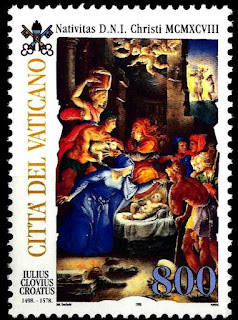
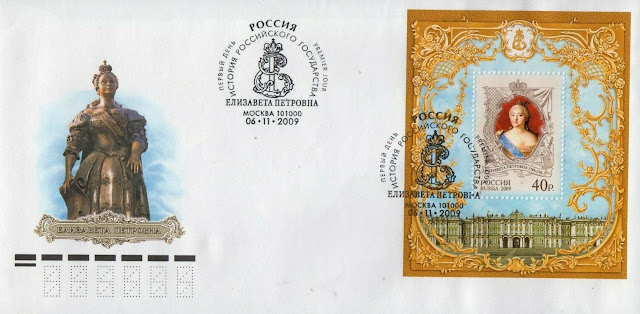
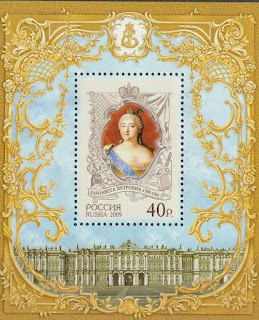
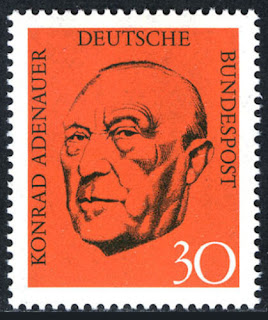
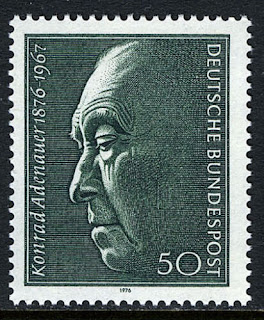

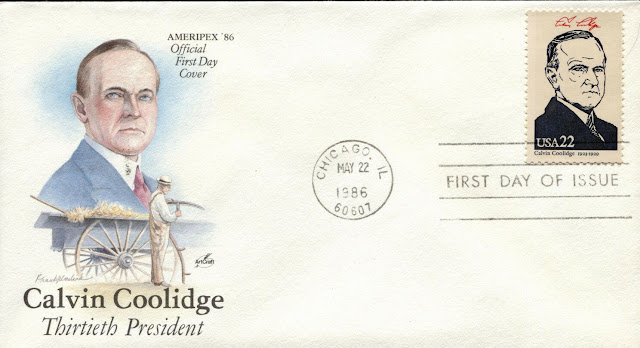


No comments:
Post a Comment